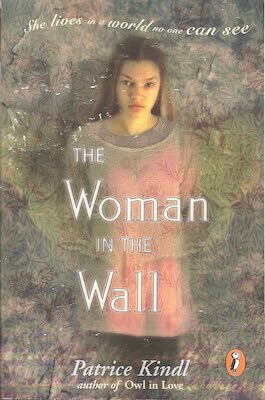Around 15 years ago my friend Erik interrupted me while I was talking about my workday to say, “Stop being boring.” He was always a bit brash and maybe my feelings were a little hurt, but it became lore, a story I told about him. With time and distance, I can see that he was right. I have historically conceived of myself as my job. For years I was a property manager, and after work I would talk about tenants and owners and vendors, describing phone calls and apartments in detail to friends over drinks. Then I was a graduate student and spoke mostly to other graduate students. Now I’m a professor and struggling to shape who I am both in work and outside of it. Work seeps into other parts of my life, takes up space mentally and emotionally.
It’s this push and pull that formed the essential idea of The Cleaner. The book follows a woman who makes her job her entire life. She draws all happiness and meaning from her work, which causes her to overinflate the importance of her job. You might say she oversteps, but she wouldn’t say this, because of course she sees her domain as expansive. If your job spills over into every moment of your life, it makes perfect sense to intervene in everyone else’s lives to help them do better. While none of her supposed coworkers see her because she works at night, she believes she pulls the strings and if they just saw her, truly saw her, they too would know how important and meaningful her work actually is.
What follows are eight books that explore invisible women and their labor.
Homebodies by Tembe Denton-Hurst
Mickey Hayward is overlooked and poorly treated in her job at Wave, a media company in New York. But she still dreams of writing something that will matter. She believes she might find meaning in her work, that she might be seen and appreciated, or at least she does until she finds out she’s being replaced. After she’s let go, Mickey uploads a letter to twitter, decrying the racism and sexism that was in abundance at her workplace but unfortunately her letter is quietly received. In turn, she seems to give up on being respected or valued by this in-crowd and flees to her hometown to stay at her grandparents’ house. Her letter resurfaces during a media scandal, which provides her with a platform to speak and be truly heard, but she must grapple with what it is she wants to say, and how she wants her life to look.
Monstrilio by Gerardo Sámano Córdova
Grief is so often quiet or hidden away, but in this novel, we see how powerful a mother’s grief can be. After her son Santiago dies, his mother Magos “wants to learn one last secret from her son. What part of a person’s body is inextricably themselves?” So Magos takes a piece of her dead son’s lung, leaves her husband, returns to Mexico with her mother, and begins to grow Monstrilio from this bit of lung. As this new monstrous iteration of her son matures, she keeps him hidden, not letting anyone else know about the fruits of her labor. In a novel where readers might ultimately focus on the character Monstrilio (and for good cause—I find him exhilarating) it is his mother’s desperation, labor, and secrecy that drew me in. What can one woman do when she’s not being watched? What horrific power might she unleash?
Your Driver is Waiting by Priya Guns
Damani is a ride-share driver who isn’t exactly treated or seen as a person by the people she provides services to. Between mourning her father, who died working at his fast-food job, and caring for her mother, Damini cannot participate in the protests going on in the city that are ostensibly for people like herself. She can only view them at a slight remove as she does the necessary work of keeping herself alive. This novel hinges on Damani’s new relationship with Jolene, a white woman who has considerably more money and privilege than Damani. Damini has her doubts about Jolene but on the surface, Jolene appears to be an ally, seems to understand where Damani is coming from. As the novel unfolds both Damani and readers will wonder not only if Jolene really sees Damani but if they’re even looking at the same world. This anti-capitalist novel examines classism and racism and how people of privilege fail to see those they purport to “save.”
She is a Haunting by Trang Thanh Tran
Jade Nguyen visits her estranged father in Vietnam and pretends to be a member of a traditionally happy family, one which doesn’t truly exist in this case. She can’t allow her father to see who she really is because she needs money from him in order to pay for college. So, her visit is a performance. But it turns out, the house is full of ghosts, and she cannot convince her sister or father that anything strange is happening. Readers will raptly follow her as she works to prove the house is a danger to them all. Tran writes painful moments of familial difficulty, where Jade’s father clearly doesn’t understand or want to understand her. There’s a increasing awareness that no matter what Jade does, it won’t be enough to make a difference. This atmospheric novel gives voice to characters who are deeply real and flawed.
Children of Paradise by Camilla Grudova
In a kind of wonderous fluke, Holly stumbles into a job at Paradise, one of the town’s oldest cinemas. At first, she sweeps and cleans toilets, all while being ignored by her coworkers, a seemingly impenetrable clique who even live together. She wants desperately to be seen and to belong among the group of poorly paid workers. Just as the customers of the cinema don’t appreciate or see the humanity of the workers, the cinema’s workers also see the customers as a means to an end, necessary for their true home, Paradise, to exist. Holly bides her time and keeps her head down, doing the work as it’s prescribed until she can become a true part of Paradise. But once she’s fully integrated into the cinema and its coterie of workers, will Paradise be sustainable? Under capitalism, is it possible to draw meaning from even the most magical of workplaces where rooms may appear and disappear at random?
Diary of a Void by Emi Yagi
Diary of a Void follows Ms. Shibata who starts a new job to escape the sexual harassment of her old job, only to find that as the sole female employee, everyone expects her to complete the company’s most menial tasks. In a move to avoid these assignments, she tells everyone that she is pregnant. After they make allowances, including permitting her to leave work at five each day, she explains, “What seemed of greatest concern to my bosses, rather than when I would clock out, was the question of the coffee. Who would make it? Who was going to deal with the cups? Where was the milk? They asked me to type up step-by-step instructions.”
These men rely on the women in their lives, even those on the periphery, to do the kind of essential labor that shapes their days, their weeks. With her newfound freedom Ms. Shibata is able to live a fuller life including both hobbies and relaxation. This satire brilliantly displays how a woman only becomes worthy of personhood and humanity once she is serving as a vessel for life. How many women have I known who finally discovered life-changing diagnoses once these issues were linked to their fertility? Why is this the moment when women begin to exist? Yagi’s novel is a thrill and delight.

The Woman in the Wall by Patrice Kindl
In this novel, the protagonist is quite literally invisible. Unless she stands the right way and has the proper light, her family can’t even see her. She has to give a little wave or a shout to get their attention. Teachers and classmates can’t see her, so it makes sense that she should stay at home. And she loves this—she makes herself small and reconstructs parts of her house so she can slip along behind walls and reside in closed off rooms. Readers will delight in watching her secret life, which she spends caring for those around her. All the while she watches the lives of her family, as well as friends of her sisters who come and go, and all the activities that make up a life where one is seen.
The Wall by Marlen Haushofer
The Wall features the last surviving human on earth, or it might as well, because she certainly feels alone. With her cow, bull calf, cat, dog, and a series of kittens, she undertakes the labor of keeping them and herself alive. It’s work that no other human sees or appreciates. She’s responsible for herself and frequently wonders at how well made she is for this kind of work. Perhaps it’s what she was meant for. In these harsh moments of fantasy, it’s easy to understand what it might mean to a woman in the 1960’s, or now, to do things in her own way and own time with no one to oversee or threaten her. Still, it’s lonely work and the book is full of quiet and perfectly rendered heartbreak.

